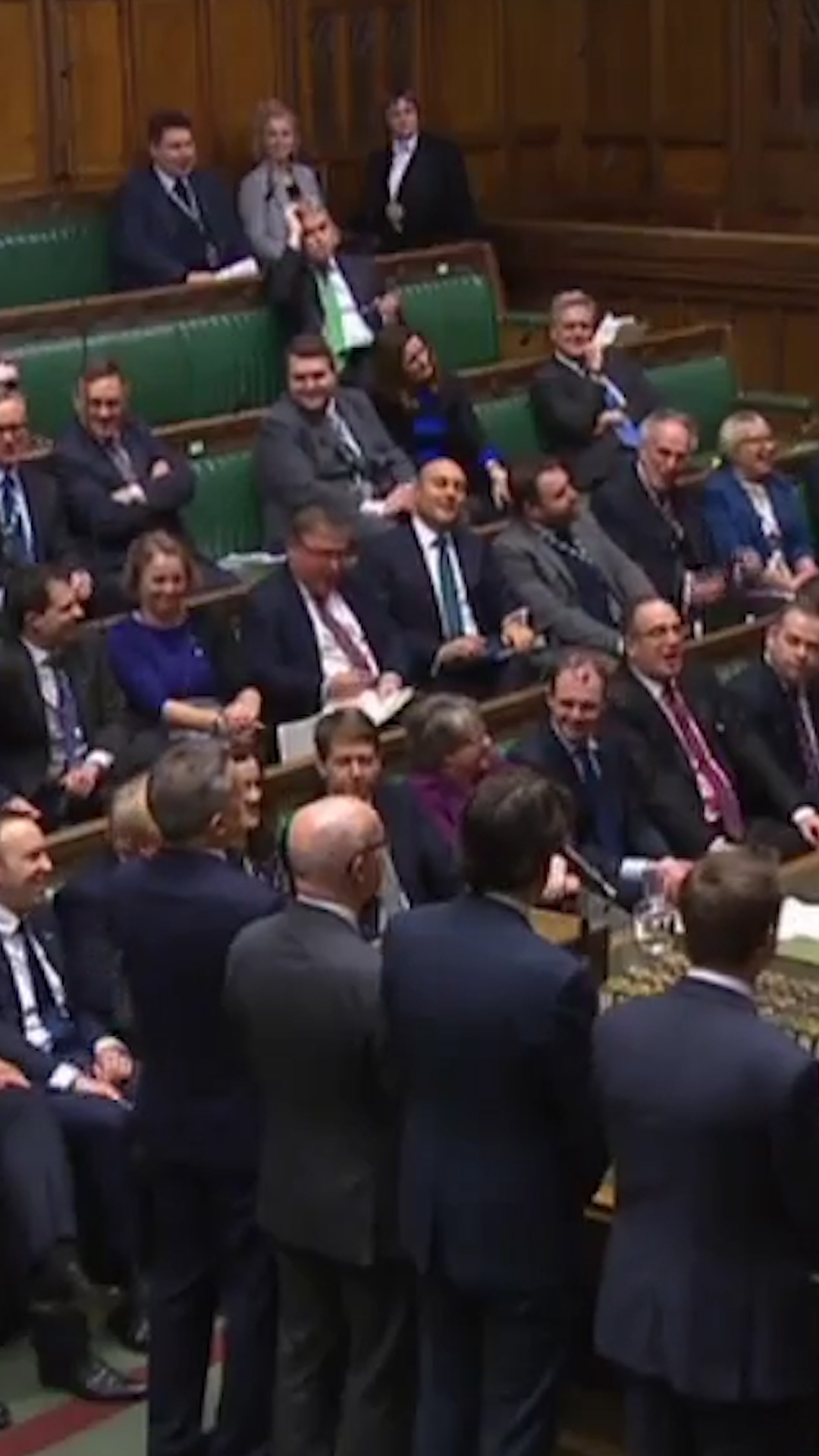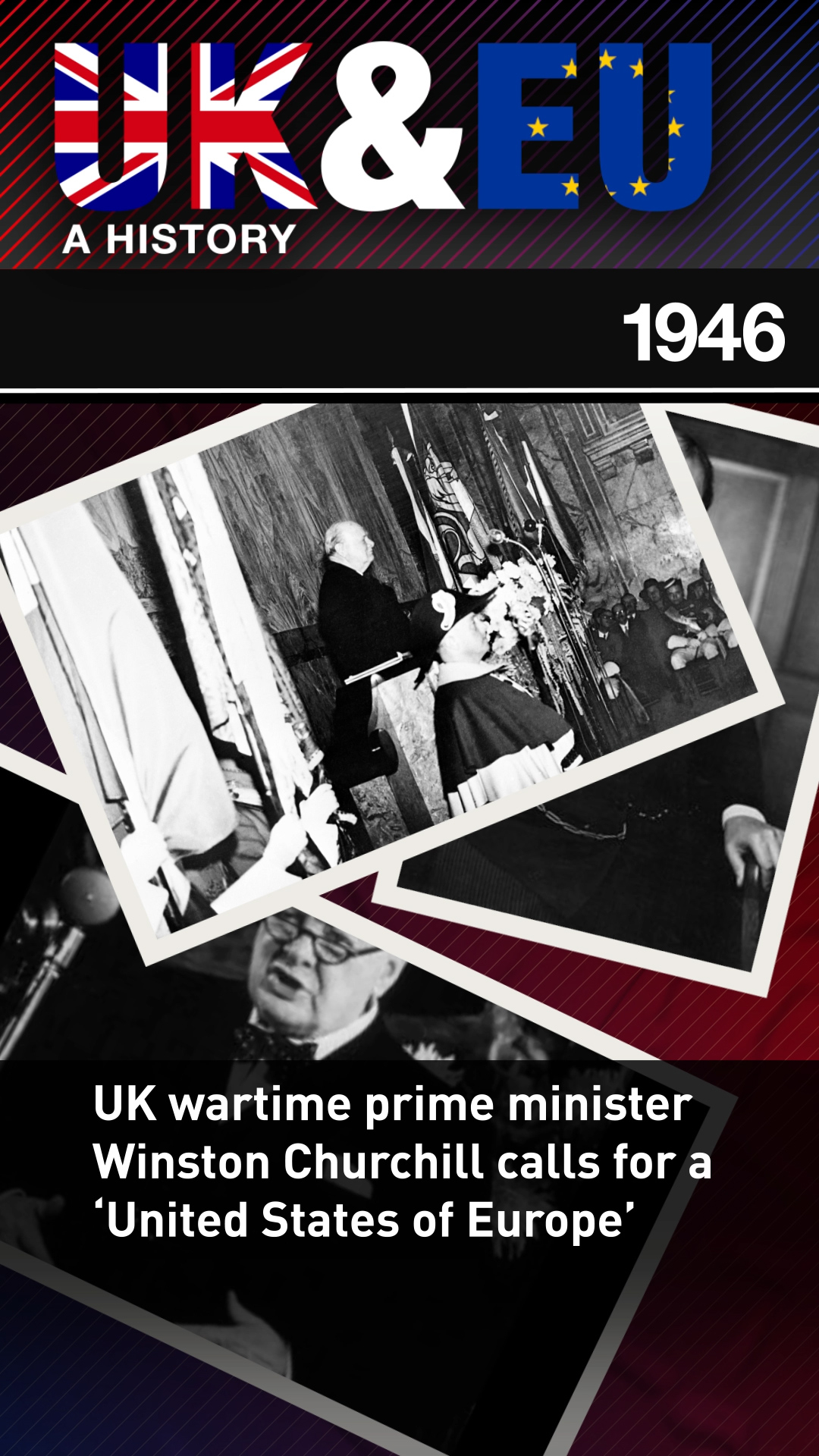02:02

Less than a month ago, after Prime Minister Boris Johnson's emphatic victory in the UK's general election, he would have had one eye on 9 January 2020, as a possible day to celebrate.
It was due to be the day his Brexit deal with the European Union (EU) passed through the House of Commons – the main chamber in Britain's parliament.
With a majority of 80 Members of Parliament in the House, it was always going to be something of a formality and the Withdrawal Agreement Bill was cleared by 330 to 231 votes.
But, while Brexit has all-but dominated the political debate in Westminster in recent years, eyes have been fixed on another crisis this week, almost 5,700 kilometers away in the Middle East – the escalating tensions between the US and Iran.
Thursday's vote means the Brexit Bill, as it is informally known, will now pass on to the the House of Lords, the revising chamber in the British parliament.
There will be a bit more scrutiny there, but after clearing the House of Commons, it looks increasingly likely Britain will be leaving the EU on 31 January.

The EU Withdrawal Agreement Bill will now pass on to the House of Lords. (Credit: AP)
The EU Withdrawal Agreement Bill will now pass on to the House of Lords. (Credit: AP)
For Johnson, there will be a sense of relief that he has been able to deliver on his key promise in last month's election – to "Get Brexit Done."
Once the UK leaves the EU, attention will quickly shift to thrashing out a free trade agreement between the two sides.
A source at Downing Street told me the British government is ready to begin those negotiations as soon as 1 February – a sign the prime minister wants to appear eager to waste no more time.
But, there are two sides to this – and the EU has indicated it wants talks to start in March. On Thursday, there was a timely reminder from Michel Barnier, the EU's chief negotiator, that getting a comprehensive deal done in 11 months simply wasn't realistic.
"We will be pushing for a good deal and we will give it our all. Never will it be the EU that fails on common ambition. Never."
Barnier, speaking in Sweden, added the EU "will strive for partnership that goes well beyond trade … but that is a very huge agenda, and we simply cannot expect to agree on every single aspect of this new partnership" in less than a year.
According to Barnier, the UK represents nine percent of all the trade of the EU's other 27 member states. The EU accounts for 43 percent of the UK's exports and half of all its imports.

The EU's chief negotiator Michel Barnier said that getting a trade deal done in 11 months simply isn't realistic. (Credit: AP)
The EU's chief negotiator Michel Barnier said that getting a trade deal done in 11 months simply isn't realistic. (Credit: AP)
An early warning shot perhaps about where the power lies in the relationship. "It is clear that if we fail to reach a deal, it will be more harmful for the UK than for the EU 27," said Barnier.
By setting a deadline of December 2020 on the transition period for the two sides to agree a deal, Johnson will immediately set the clock ticking on another deadline, having only just put to bed one major aspect of Brexit.
It's a political gamble that could allow him to point fingers if there's little movement towards a free trade agreement by the middle of the year.
But, this isn't just about the EU. An exit from the bloc on 31 January will also allow Britain to start negotiations with other countries on separate free trade deals.
The Downing Street source said that was "already being discussed" with the US, one of the countries with which Britain is looking to negotiate.
That added pressure could make a UK-EU deal even harder to achieve in a relatively short space of time.
But, the UK government is adamant it can get those trade negotiations signed, sealed and delivered by the end of the year.
03:31

Following Thursday's vote, the Brexit Bill looks set to pass its legislative hurdles in the coming days, allowing Britain to depart the bloc it first joined in 1973.
Like many lengthy relationships though, separation may prove harder than it first looks.